Substance abuse, broken homes: The truth and tragedy of youth crime in Casino, northern NSW
Residents of Casino in northern NSW say they are living in a state of fear amid a wave of opportunistic break-ins, after the town was hit by a spate of tragic and violent deaths.
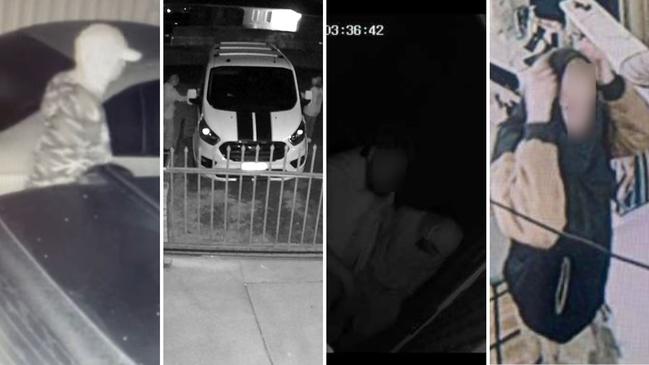
Lismore
Don't miss out on the headlines from Lismore. Followed categories will be added to My News.
Residents of a troubled Northern Rivers town are living in a state of fear amid a wave of opportunistic vehicle and home burglaries and break-ins committed by young “creepers”.
Many living in Casino, about 30 kilometres east of Lismore, have taken to social media to vent their “youth crime wave” frustrations.
It comes as the town has been beset by a spate of tragic and violent deaths in recent times, including stabbings and bashings, some of which are the subject of ongoing court cases. .
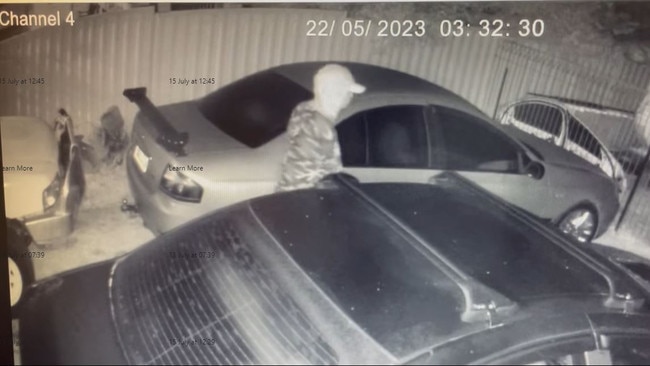
Casino break and enters into homes jumped from 79 incidents to 95 incidents from April 2021 to March this year – a 17 per cent increase over two years, according to the NSW Bureau of Crime Statistics and Research (BOCSAR). Incidents of motor vehicle theft in the area jumped 21.5 per cent per year from April 2018 to March.
As residents raise the alarm – and after reports emerged of a sickening fight club phenomenon in which crowds gather to watch and film teens in bare knuckle brawls – parents have been urged to help rein in the rampaging juveniles.
However, senior police and politicians say there is nothing sinister about the town and other regional areas have been struggling through similar issues.
Further south in Dubbo, residents have called for an overnight curfew in an effort to stamp out a rising tide of youth crime.
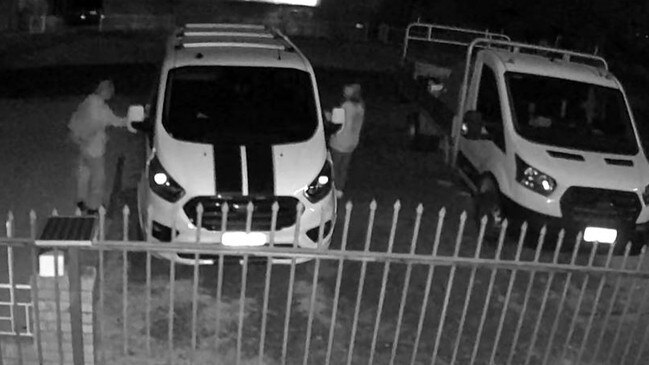
Angry Casino residents have been converging on social media, with some threatening to take matters into their own hands if authorities and caregivers are not able to curb incidents.
The truth behind the apparent youth crime wave is complicated.
A town divided
Train tracks mark the divide between the southern part of Casino and Casino north.
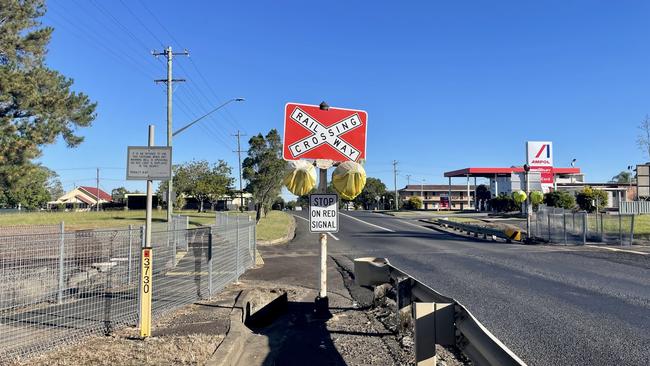
The south of Casino seems just like any other country town. A bit of life, but a little sleepy nonetheless.
Walking through the main street, a survey of 10 shops on the southside of town, ranging from chemists, to tobacconist and the local butcher, revealed no apparent crime wave.
But across the tracks it is a different story – one evident by the lack of community infrastructure and obvious socio-economic disadvantage.
Most crime occurs in Casino north, according to reports from angry residents, much of it opportunistic property offending. Kids stealing from cars and homes when the chance arises.
‘Classic small town country stuff’
It’s been described as “creeping”. When young people wander streets checking car doors and windows of homes for easy pickings.
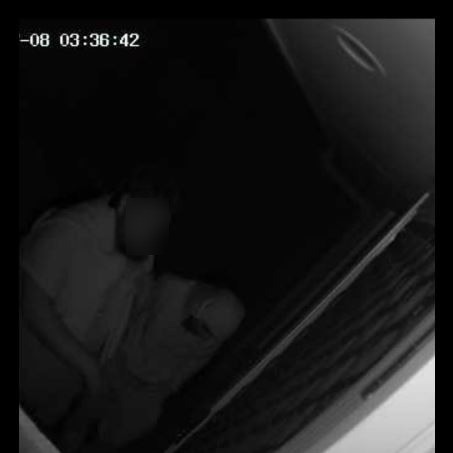
One business owner, who asked not to be named, linked the juvenile crime to “mainly bored kids with nothing to do and nowhere to go”.
“It’s classic small town country stuff,” he said.
But a business owner in the southern section of Casino said juvenile crime in the area was getting worse by the day.
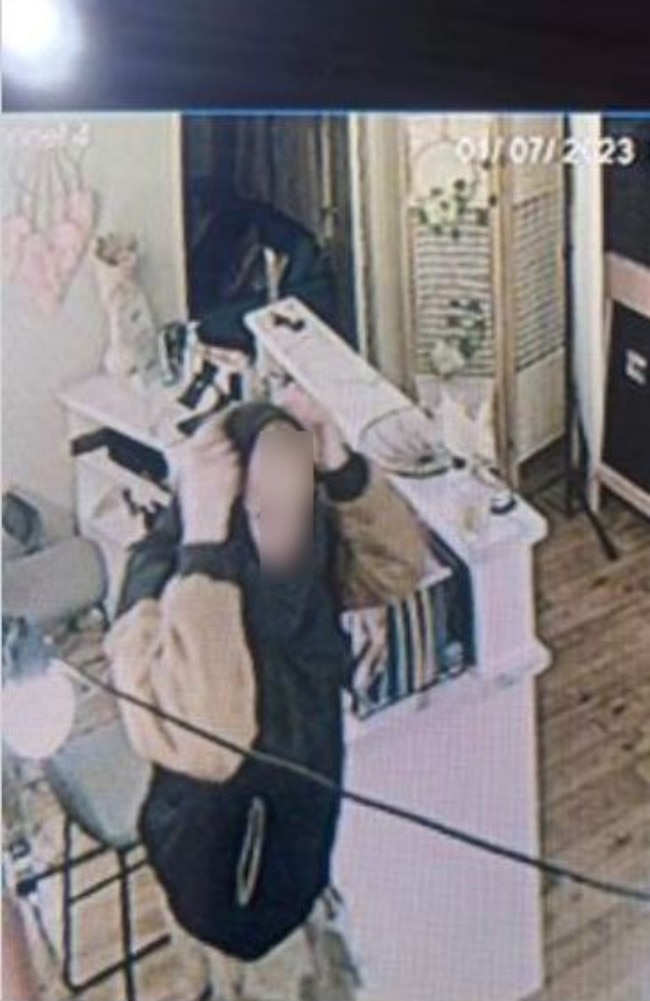
Daniel Jenkins owns Casino’s Cecil Hotel, a popular watering hole. He complained of kids kicking in windows, stealing from people using the pokies and burgling the bottle shop.
Mr Jenkins said he was out of pocket thousands of dollars due to lost stock, repairs and even handing over cash to pokie players targeted by thieves.
He said young offenders were trapped in a cycle of socio-economic disadvantage.
“Violence is unfortunately what they know, and you’re not going to get that out of them because they go home and cop it,” Mr Jenkins said.
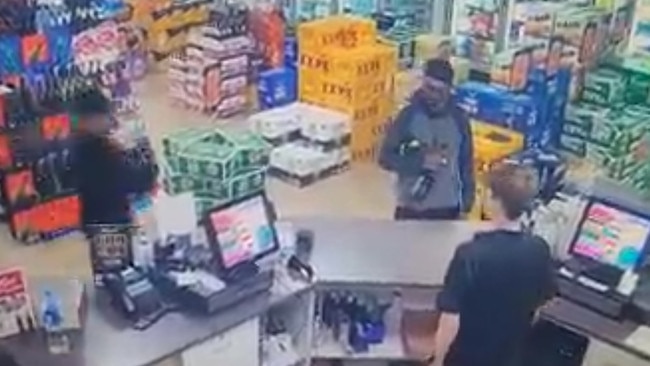
“You can’t expect them to turn into respected members of society when they’re not treated the right way.”
He pointed to a chef at his hotel, Jacinta Lopez, a 23-year resident of Casino north, as someone the kids looked up to and respected.
‘We can still help them’
Ms Lopez spoke of the issues facing so many young people in Casino north – and urged the community not to give up on them.
One neighbourhood in particular, described colloquially as ‘Checkerboard Hill’ or simply ‘Checker’, is where much of the town’s crime happens, locals say.
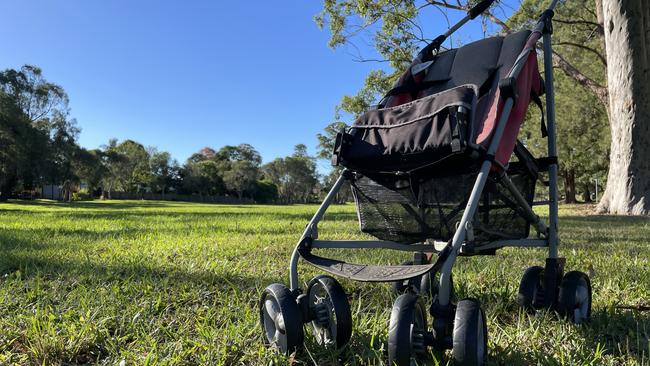
Ms Lopez is concerned about domestic violence, substance abuse and broken homes. But she also spoke of some good families and role models with a strong sense of community, who look out for one another.
“It’s negative all the time, no one is seeing the positives (of the area),” Ms Lopez said.
Raising her family in Checker, Ms Lopez said she always made sure she knew where her kids were at night and that they were home at a reasonable hour.
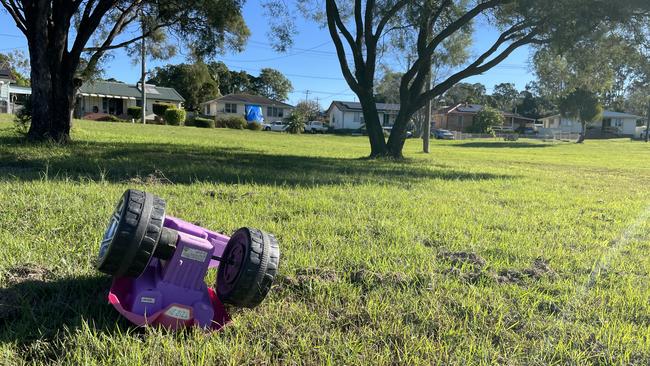
She also spoke of the need for more community programs in the area.
“The next generation growing up – we can still help them,” she said.
Ms Lopez said it would be nice for police to visit Casino north more to build trust.
She said there needed to be more activities for young people.
She suggested a BMX track in a park, a football field at McCracken Park or reopening community hubs.
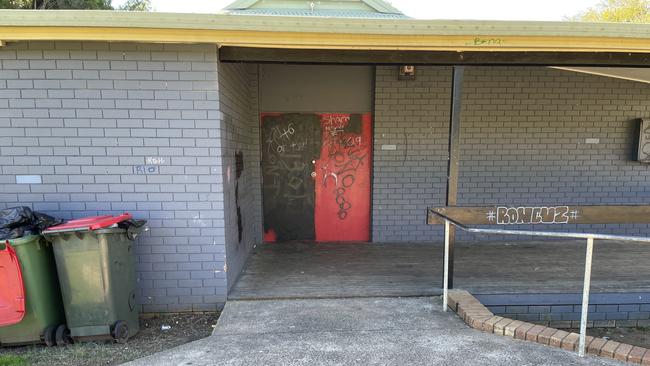
Whenever such ideas are mentioned, they get knocked back because people believe whatever is built will get vandalised and destroyed, according to Ms Lopez.
That sentiment was reflected by Richmond Valley Mayor Robert Mustow when asked about community hubs and McCracken Park.
Cr Mustow spoke of new play equipment installed at McCracken Park in February 2017, when the council received a $44,913 Social Housing Community Improvement Fund grant.
“It has been vandalised many times since,” he said.
Cr Mustow said a slippery dip had been “cut with a saw” and “set on fire” and that equipment was covered with “graffiti” via spray paint and marker pens.
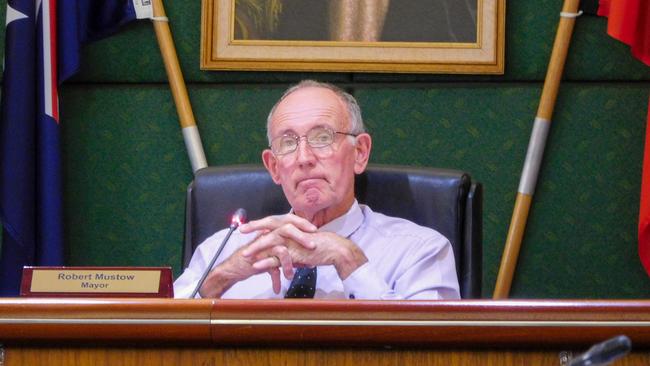
He also said soft fall material installed to cushion landings was “set on fire twice”.
“Council has spent many thousands of dollars repairing the equipment, but after the latest attack the tough decision was made to remove what remained,” he said.
“It is quite disheartening when a few people think it is okay to spoil these facilities for the rest of the community.”
It’s not just a Casino problem
State Clarence MP Richie Williamson said the media spotlight on Casino has been unfair.
“Every rural town is having an issue at the moment with crime and I don’t think Casino is different to a lot of country towns in NSW,” he said.
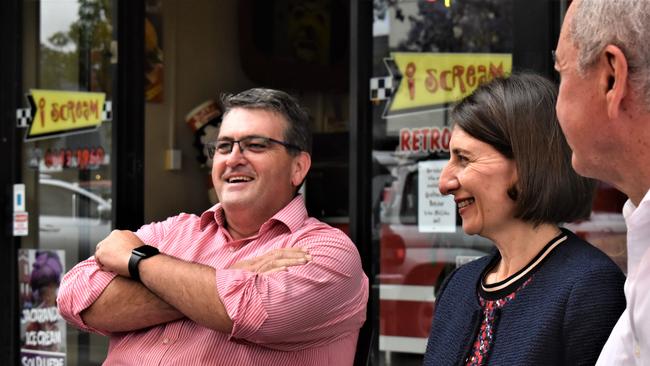
“Sadly this is not just a Casino problem.”
Mr Williamson pointed to nearby towns such as Coraki and Woodburn, which he said experienced similar problems.
“We all want to see crime driven down … (but) youth crime appears to be a problem in a lot of country and rural areas, and I think there is a lot of commonality between each of these country towns,” he said.
Richmond Police District crime manager Detective Inspector Grant Erickson said bushfires, flooding and the Covid pandemic impacted the town.
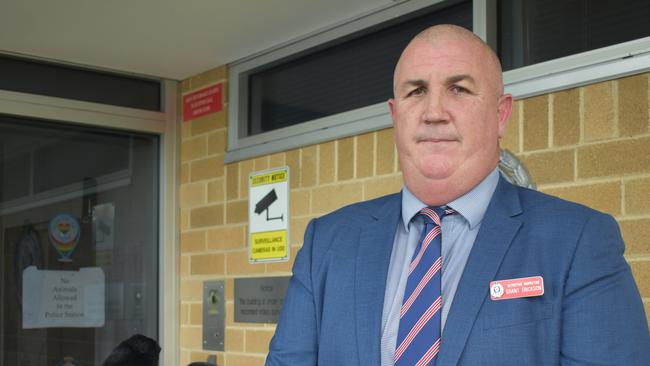
He said most youth offending was “largely opportunistic“.
“Experience has taught us opportunistic offenders will generally bypass those homes where windows and doors are secured and their vehicles are locked and free of valuables on display,” Det Insp Erickson said.
He called on the community to help pull a minority of young offenders into line.
“Our police are committed to working closely with the community of Casino to identify and address concerns that may arise in the township,” he said.
‘What you see is what you’re going to do’
Sitting on the porch of a home on Boronia Crescent in Casino North, the heart of the Checkerboard, William Walker and his mate Kaine Bolt look out over McCracken Park.
Both men suggested putting up footy posts, and gestured towards a “no golfing” sign recently erected in hopes of stopping youths hitting golf balls into surrounding homes.
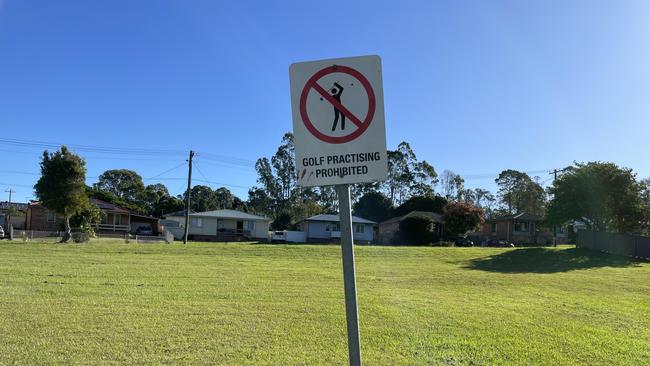
The friends said more juveniles were experiencing substance abuse issues.
“Young people getting on drugs these days – it’s just getting worse and worse,” Mr Walker said.
Mr Bolt said he believed part of the problem came from a distrust between juvenile offenders and authorities.
“If the police treat you right, the kids will grow up good,” Mr Bolt said.
“But if the police harass you … the kids will retaliate back.”
However, Det Insp Erickson said police were “actively engaged” in early intervention programs to help at-risk youths find meaning in their lives and prevent them entering the criminal justice system.
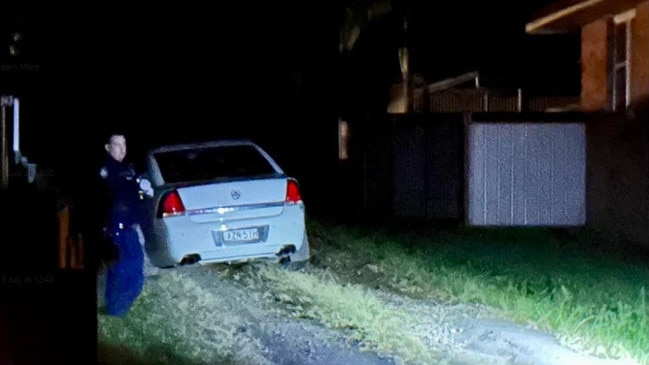
“(We) will continue to work to empower the youth to make the right decisions,” he said.
“However, there needs to be a concerted, societal effort to instil a sense of belonging and purpose to enable at-risk young individuals to reach their full potential.
“This could mean encouraging kids into activities such as work, school, community or sport.”
Mr Bolt and Mr Williams said there was a need for more positive adult role models.
“It’s not just the kids, it’s the adults … it’s got to start not from the bottom up, but from the top down,” he said.
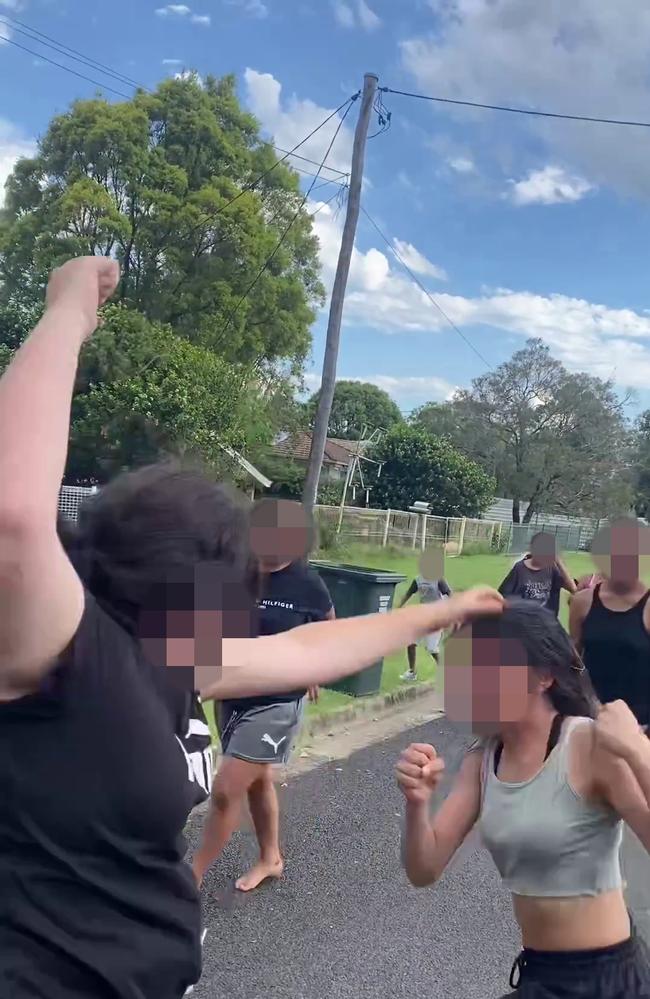
“Because (the kids) start to see all the adults do this and that.
“They see most of the men are in jail and now the kids are saying ‘remember he used to go around here doing this and that, let’s go do that, that’s what they was wearing, let’s go wear that’.
“They look around and that’s what they see – and what you see is what you’re going to do.”
‘Good town at heart’
Mr Bolt said Casino was a “good town” at heart, despite its problems.
On a Saturday afternoon, the street was relatively quiet, with many kids and families out to play sports, particularly footy.
“If they didn’t have footy — not just Aboriginal kids, white kids too – if they didn’t have that, imagine how bad it would be,” Mr Bolt said.
“And most of these kids play football … you think this is bad now, imagine if they don’t have football, if they don’t have junior league.
“The Casino Cougars is not a racist club and is doing a lot of good things.”
Just up the road from them on Boronia Cr was Daniel Roberts, a dad busy getting his six children ready for weekend sports.

He said his children were “right into” footy and netball and echoed calls for more sports facilities and other activities for the youth.
Mr Roberts said without sport they “float around”, get bored and end up in trouble.
He said Casino was at a tipping point.
“If you look at vibe and energy, this place has got a bad energy – you can change it though,” he said.
Numerous homes surrounding Mr Roberts’ are owned by members of his family and he said there was a strong sense of community in the neighbourhood, and much of town. It’s not all bad.
“We need a positive mindset and a positive attitude about here,” he said.
“Positivity is stronger than negativity.”




